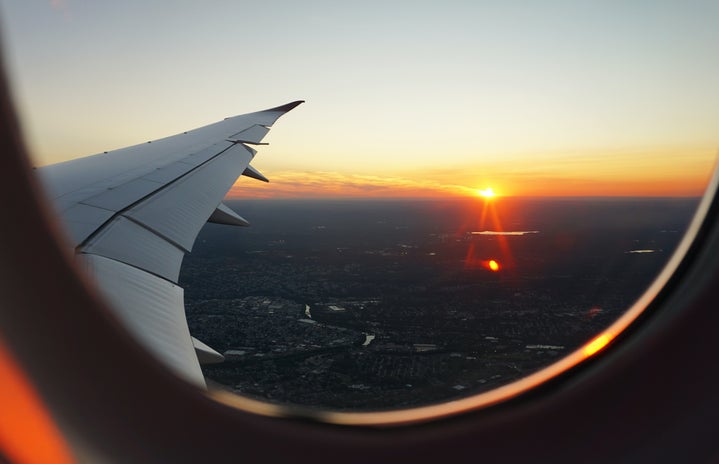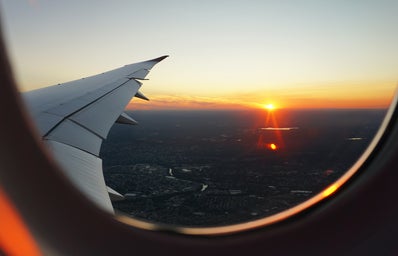Exchange programs during the pandemic turned into real obstacles for those who had the desire to study abroad. While some students bemoaned the loss of experience during the trip, some even took advantage of leaving for another country.
With the closing of consulates and reduced attendance, the first challenge for those who would do an exchange was to get a visa. In addition, it was also necessary to pay attention to the rules for closing borders and hope that they were favorable at the time of boarding.
Being lucky that fate was in a good moment of the pandemic it was for few. That’s what happened to student Rafaela dos Santos. The 18-year-old was born and raised in the city of São Paulo, Brazil, and dreamed about an exchange program to the United States since 2019, when she was still in her junior year of high school, way before the pandemic hit.
The exchange student finished her application in December 2019 and found out who her host family would be at the beginning of 2020. Her flight was scheduled for August of the same year. However, Rafaela, like everyone else, did not expect that a pandemic would disrupt her life projects. She arrived in the American territory only a year later than the expected date, in August 2021, and has been living in the country for nine months. She studies at Bridgeport High School, in the state of West Virginia.
Rafaela in front of her school
How was the situation in the U.S?
The United States is one of the most sought-after countries for exchanges. During the tensest pandemic period, its borders remained closed for a long time and visa issuance was suspended. The former President, Donald Trump, reopened them days before he left the presidency. The measure was reversed shortly after Joe Biden took office. However, in practice, the block did not cease to exist.
Covid-19 emerged right at the beginning of Rafaela’s journey, as people started talking about the virus at the same time she was talking to her host family, in February 2020. The exchange student remembers that, even in that period, there were around more than a hundred confirmed cases in Brazil and, in the United States, the situation was already much worse.
“Everything started to affect me even in quarantine, on March 16th. The consulate was closed, and the borders of the United States were shut to anyone who was not an American. Those who weren’t had to do fifteen days of quarantine somewhere else to be able to enter the country. I had already paid part and met my family. The pandemic affected right in the middle of the exchange process”, reports the student.
The American borders remained under restrictions until April 26, 2021, when an official statement was released informing about the new rules and a new National Interest Exception (NIE). According to this exception, only Brazilian students with valid visas who began their studies in the US on the first day of August could travel to the country.
Rafaela at the departure gate
Therefore, NIE qualifiers must comply with all health regulations in the United States and undergo a viral test three days before the flight into the country. In addition, everyone should provide written documentation regarding the test result to the airline. It is worth mentioning that it was also forbidden for exchange students to arrive in the country more than 30 days before the start of classes.
For those who needed a student visa, they should’ve consulted the website of the nearest Embassy or Consulate. Visa interviews were also stalled for a period and were intended to happen around May 2021, if the conditions were allowed.
Were there any difficulties?
Rafaela said that this process was very tough for her, as she spent a long time waiting for the consulates to open, apart from the test that was required three days before the trip.
To board, in August 2021, one of the things the student needed most was to present the Covid test. It had to be specifically the RT-PCR that could detect the virus in a respiratory secretion. At the time, this was the most expensive test and she says that she did it two days before her trip and was expecting the result to come out quickly because, without it, Rafaela wouldn’t be able to board.
Another bureaucracy required at the time, according to the regulation of Brazil’s National Health Surveillance Agency (Anvisa) was the types of mandatory masks at airports and planes: N95 or PFF2, since the rules did not allow the use of cloth masks or disposable masks.
The vaccination card was not essential at the time, as in Brazil there were still not enough doses for the entire population – yet another reason why several people faced problems leaving the country.
Rafaela also states that she managed to take the first dose of the vaccine a week after she arrived in the United States. In three weeks, the student had already managed to take two doses and the third one was taken in March 2022. She assures us that there were many doses available: “Here there always been many doses leftover because many people are not taking them, there are many anti-vaccines here. I didn’t have to pay anything, just show my passport and insurance card. I don’t know if I would have taken it without it or if it would still be free”.
The exchange student also says that she has always been afraid of the pandemic and thinks she has already contracted the virus in America, at least once. It all happened in her last host family change, around Christmas time, when her host family was very ill, coughing and sneezing. She tells us that she didn’t have flu symptoms, but that she didn’t smell or taste almost anything.
How was it for her?
In Brazil, the exchange student was very worried about the pandemic, and was always sterilizing things when she arrived at places, markets, and malls. She noticed a huge difference when she lived in the United States, as people weren’t careful at all, including her host family. The student reports the lack of care that people had with the pandemic in her city:
About Rafaela’s mental health, she claims to have not felt as shaken as in Brazil, but that she still has some sessions with a Brazilian therapist online. She adds: “I’m not so afraid of the pandemic anymore, I’m much calmer”.
How is it today?
On November 8, 2021, the United States government declared that all Brazilians with full vaccination approved by the World Health Organization (WHO) would be able to enter the country without needing a period of quarantine, as long as they have proof of vaccination and the test result. It is essential to have a negative RT-PCR performed on the day of the flight or the day before it.
The proof of the vaccine, which was not necessary before due to lack of availability, is now mandatory. This is what has changed, but the presentation of the test result is still necessary the consulates are already attending normally for the issuance of visas. Now, it is way easier to do an exchange program when compared to the tensest period of the pandemic. But, of course, it is not as simple as it was before the Covid-19 virus emerged.
——————————
The article above was edited by Lorena Lindenberg.
Liked this type of content? Check Her Campus Cásper Líbero page for more!


